Mexico saw 10 ‘important changes’ in AMLO’s term: security chief
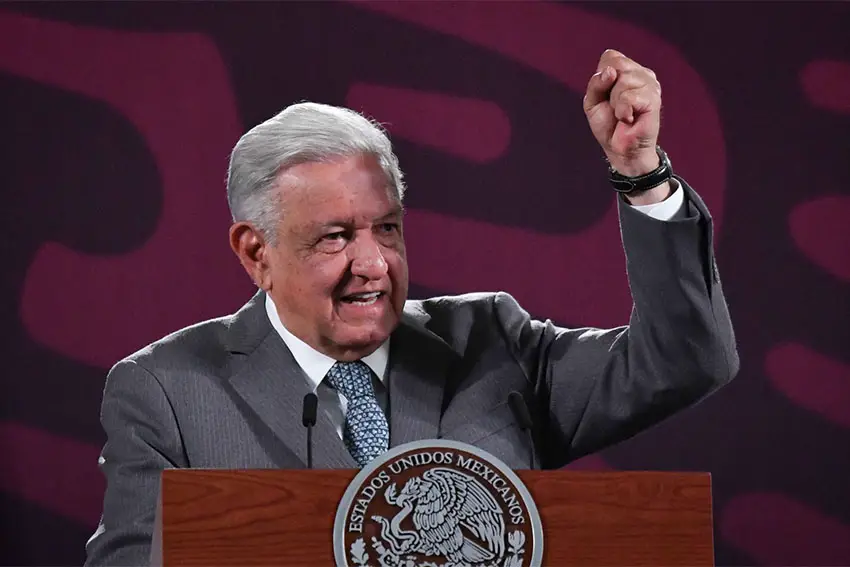
President Andrés Manuel López Obrador’s government has set “a solid base” for the government of incoming president Claudia Sheinbaum, Security Minister Rosa Icela Rodríguez said Tuesday.
Rodríguez made the assertion while delivering her final fortnightly security report at López Obrador’s daily morning press conference. Before making the claim, the security minister presented what she described as “10 important changes” that have occurred during the current government’s six-year term, or sexenio.
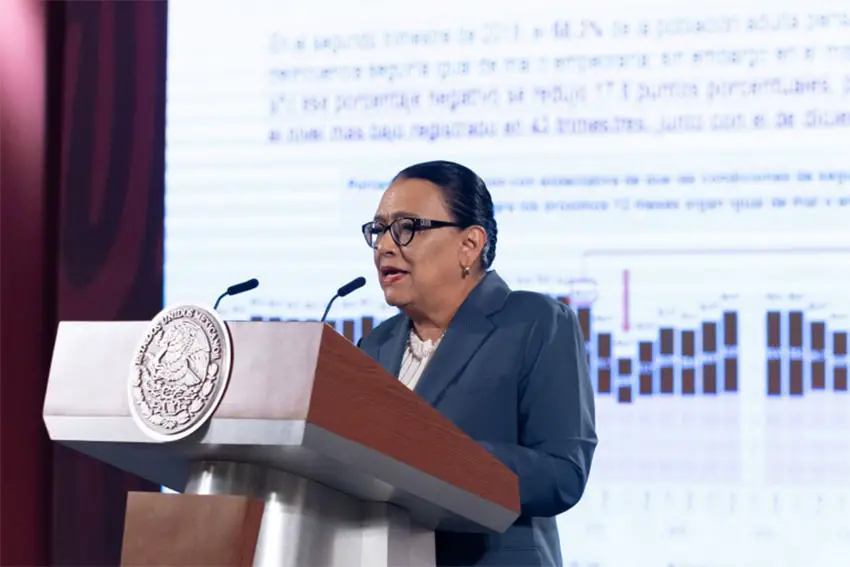
The changes, she said, “reveal that the way of governing in Mexico” during the past six years has had a “positive impact” on the country and its people.
Rodríguez, who became President López Obrador’s security minister in late 2020, will serve as interior minister in the government of Claudia Sheinbaum, who will take office as Mexico’s first female president on Oct. 1.
Based mainly on data from the national statistics agency INEGI, these are the “10 important changes” Rodríguez outlined on Tuesday.
1. Poverty and crime declined in most states
Rodríguez said that government data shows that both crime rates and poverty rates decreased in 27 of Mexico’s 32 states between 2018 and 2022.


She said that poverty increased in Tlaxcala and México state but that crime declined in both states.
In Coahuila, Yucatán and Nuevo León, poverty declined but crime increased, Rodríguez said.
The security minister highlighted that none of Mexico’s federal entities recorded increases in both poverty and crime during the 2018–2022 period.
2. Robbery and extortion declined
Again citing INEGI data, Rodríguez noted that the national robbery and extortion rate declined 12.7 points in the first half of 2024 compared to the first six months of 2018, when former president Enrique Peña Nieto was approaching the end of his sexenio.
Data she presented showed that at least one member of 25.9% of households was a victim of robbery and/or extortion during the first half of the year, down from 38.6% in the first six months of 2018.
3. Perceptions of insecurity fell
Rodríguez highlighted that the percentage of people who believe the city in which they live is unsafe declined 14.3 points in the second quarter of 2024 compared to the final quarter of 2018.
The latest National Survey of Urban Public Security (ENSU) found that 59.4% of adults have security concerns about the city in which they live, down from 73.7% in the final quarter of 2018.
Rodríguez said that the downward trend in perceptions of insecurity over the past 22 quarters is “something that practically isn’t seen in any country in the world.”
4. Security expectations improved
Citing more ENSU findings, Rodríguez noted that in the second quarter of 2018, 68.3% of those polled believed that Mexico’s security situation would remain “just as bad” or deteriorate in the next 12 months.
In the second quarter of this year, the figure was 50.5%, a decline of 17.8 points in the space of six years.
“This is the [equal] lowest level in 43 quarters, along with that of December 2018,” Rodríguez said.
5. The National Guard was created
“Despite its recent creation,” the National Guard is “identified” by nine in 10 Mexicans, Rodríguez said.
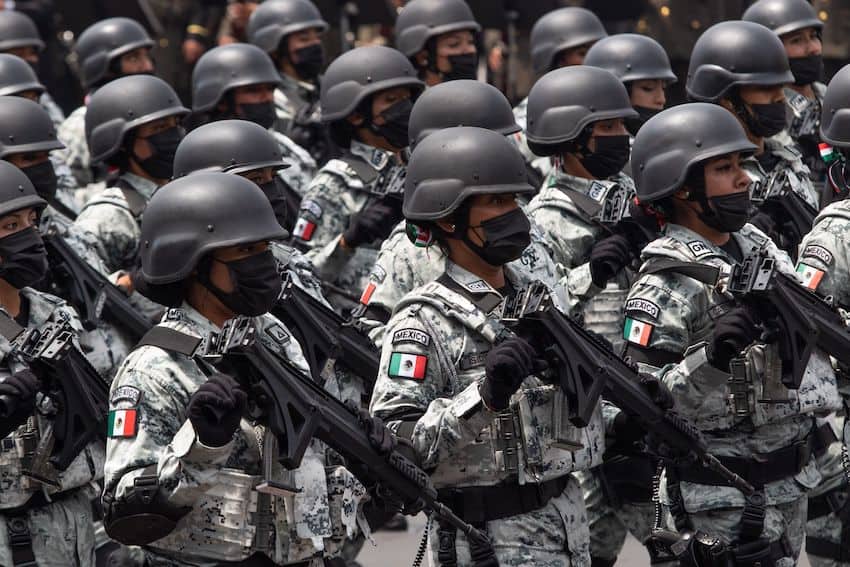

“In the beginning, it was only three in 10,” she said.
Citing INEGI data, Rodríguez said that 74% of Mexicans consider the National Guard an “effective” security force.
López Obrador inaugurated the security force in 2019. He would like to see it placed under the control of the army before he leaves office in less than two weeks.
6. Corruption in Mexico declined
Rodríguez presented data that showed that 25,394 of every 100,000 people who completed a government trámite, or procedure, in 2023 experienced an “act of corruption.”
That figure represented a decline of 16.6% compared to 2019.
“This means 5,062 fewer acts [of corruption],” Rodríguez said.
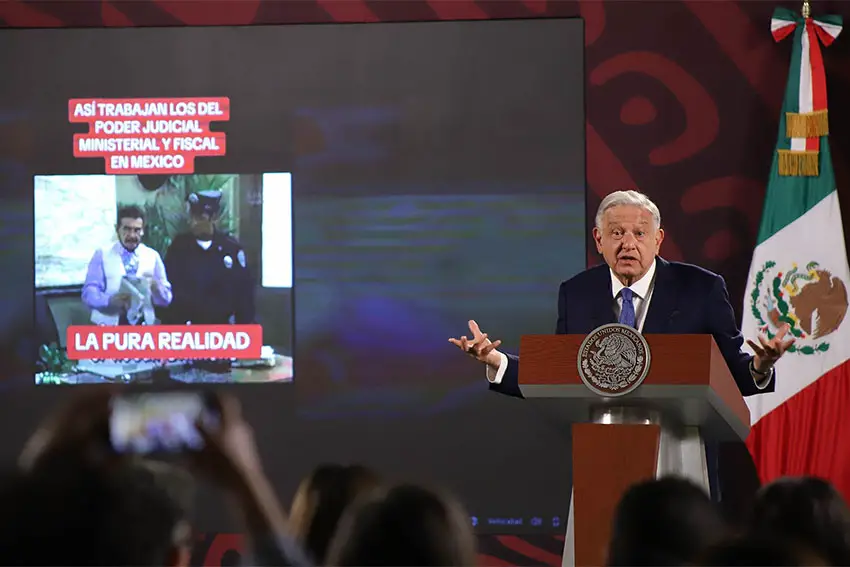

7. Citizens’ perception of the frequency of corruption fell
Rodríguez also highlighted that the proportion of Mexicans who believe that acts of corruption occur frequently in their state declined 8.8% between 2017 and 2023.
However, the percentage of people who believe that corruption occurs frequently remained high in the latter year at 83.1%.
8. Citizens trust AMLO more than governors, mayors
Citing data from an INEGI survey conducted in March, Rodríguez noted that 53.5% of adults had high levels of confidence in López Obrador.
The figures for governors and mayors was 33.2% and 28.1%, respectively.
9. The federal government became the most trusted authority
“A ninth change has also been achieved,” Rodríguez said before noting that a 2023 survey found that 59.1% of people trust the federal government. She highlighted that the figure more than doubled compared to 2017.
Data presented by Rodríguez showed that 48.2% of people expressed trust in state governments in 2023, while the figure for municipal governments was slightly higher at 49.9%.
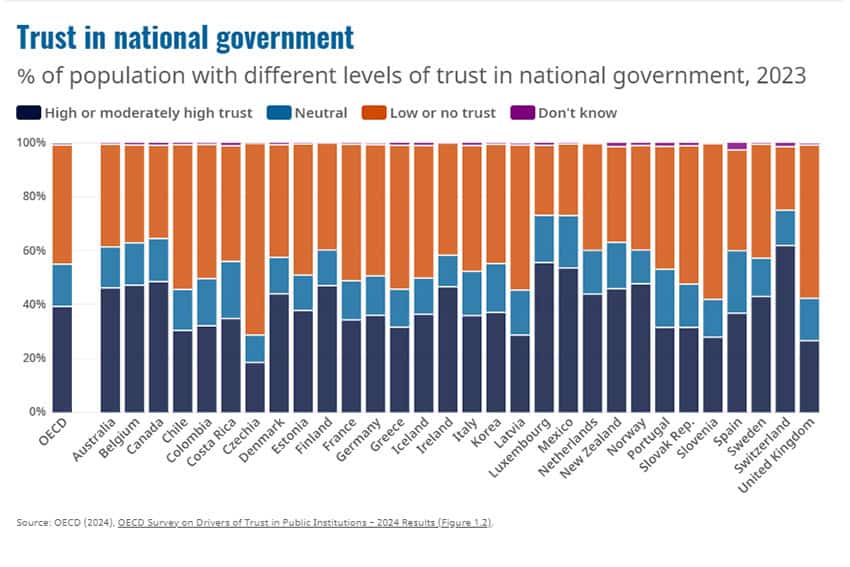

“The government institution in which people now have the most trust is the government of Mexico,” the security minister said.
“… We’re talking about figures from INEGI, they’re not our figures, they are INEGI’s,” she said.
10. Mexicans demonstrated more trust in government than Canadians, Brits and Germans
Presenting the 10th and final “important change” that has occurred during President López Obrador’s presidency, Rodríguez presented the results of an OECD survey on trust in national governments.
“This graph shows that in 2023, 54% of Mexicans had high or moderately high trust in their government,” she said.
Rodríguez noted that the percentage of Mexicans with high levels of trust in their national government was well above the 39% OECD average. She also highlighted that Mexico’s percentage was below that of just two countries – Switzerland and Luxembourg.
Citizens of 30 countries participated in the survey. The percentage of Mexicans with high levels of trust in their government was higher than the percentages detected in 27 countries including Canada, the United Kingdom, Germany, Australia, Denmark, New Zealand, France, South Korea, Norway, Chile, Italy and Spain.


Rodríguez asserted that the 10 changes she outlined are indicative of the “great progress” made by “the movement of transformation led by President López Obrador” and provide a “solid base for the new government of President-elect Claudia Sheinbaum.”
“Mr. President, thank you. You have taught us the culture of peace over the culture of war,” she added.
Sheinbaum, a political protégé of López Obrador, has pledged to build the “second story” of the so-called fourth transformation initiated by the president.
She has expressed support for virtually all of the current government’s projects, policies and initiatives, including a packet of constitutional reform proposals López Obrador sent to Congress in February.
Among the areas in which Sheinbaum will face key challenges as president are security, energy and the economy. She will also have to convince foreign companies that Mexico remains a good place to invest, despite concerns over the recently enacted judicial reform and other constitutional bills and issues.
Mexico News Daily
Source: Mexico News Daily

